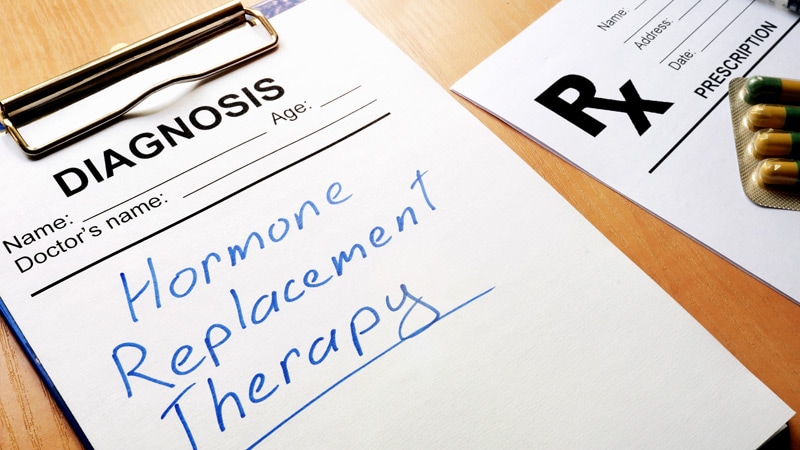Effectiveness of Hormone Therapy in Women with Obesity
Core Concepts
Obesity may worsen menopausal symptoms and limit hormone therapy effectiveness.
Abstract
The study presented at the Menopause Society highlighted the impact of obesity on menopausal symptoms and hormone therapy effectiveness. Key findings include:
- Women with obesity experience more severe menopausal symptoms.
- Hormone therapy may be less effective in women with obesity.
- Adipose tissue acting as a heat insulator could reduce hormone therapy efficacy.
- Women with obesity were less likely to see symptom improvement with hormone therapy.
- Diverse patient populations need better care and counseling for menopausal symptoms.
- Providers may undertreat women with obesity due to fear and comorbidities.
- Study limitations include small size and inability to control for other medications.
Customize Summary
Rewrite with AI
Generate Citations
Translate Source
To Another Language
Generate MindMap
from source content
Visit Source
www.medscape.com
Hormone Therapy Less Effective in Women With Obesity
Stats
More than 40% of women over age 40 in the United States have obesity.
Obesity was defined as having a body mass index (BMI) of 30 kg/m2 or greater.
Women with obesity were much less likely to see a satisfying reduction in their menopausal symptoms than women without obesity (odds ratio 0.07, 95% confidence interval, 0.01-0.64; P = .006).
Quotes
"Obesity may worsen a woman's menopausal symptoms and limit the amount of relief she gets from hormone therapy." - Dr. Pershad
"My guess is people are afraid. Women with obesity also may have other comorbidities." - Dr. Faubion
Key Insights Distilled From
by Tara Haelle at www.medscape.com 10-05-2023
http://www.medscape.com/viewarticle/997117
Deeper Inquiries
How can healthcare providers better tailor hormone therapy for women with obesity?
Healthcare providers can better tailor hormone therapy for women with obesity by considering several factors. Firstly, adjusting the dosage of hormone therapy based on the individual's body mass index (BMI) can be crucial. Since women with obesity may metabolize medications differently, personalized dosing may be necessary to achieve optimal therapeutic effects. Additionally, healthcare providers should closely monitor hormone levels in women with obesity to ensure that the therapy is being effective. Moreover, considering alternative administration routes or formulations of hormone therapy may also be beneficial for women with obesity, as traditional methods may not be as effective in this population.
Is there a need for more extensive studies on menopausal symptoms in diverse patient populations?
Yes, there is a definite need for more extensive studies on menopausal symptoms in diverse patient populations. The current research landscape often lacks representation from diverse groups, including women with obesity and other medical comorbidities. By conducting studies that include a more diverse range of participants, researchers can gain a better understanding of how menopausal symptoms manifest in different populations and how they respond to various treatment options. This can lead to more tailored and effective approaches to managing menopausal symptoms in women with obesity and other unique characteristics.
How can societal factors impact the effectiveness of hormone therapy in women with obesity?
Societal factors can significantly impact the effectiveness of hormone therapy in women with obesity. For instance, women with obesity may face barriers to accessing healthcare services, including menopausal care. Limited access to quality healthcare, stigma surrounding obesity, and socioeconomic factors can all influence the way women with obesity engage with hormone therapy. Additionally, societal norms and cultural beliefs about menopause and obesity can affect women's willingness to seek treatment and adhere to therapy regimens. Addressing these societal factors through improved education, access to care, and culturally sensitive approaches can help enhance the effectiveness of hormone therapy in women with obesity.
0
